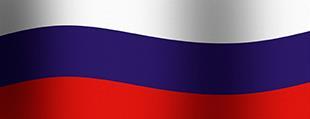Tim Bowen makes the mammoth task of learning English a little easier with his handy guide to Russian words used in English.

Given the significance of the Soviet Union in 20th century history, it is perhaps unsurprising that the field of politics has provided a number of Russian terms that have passed into English.
The Russian revolution of 1917 introduced the world to the concept of the Bolshevik (derived from the word bol’she meaning ‘more’ or ‘greater’), representing those who held the majority view at the time. The word Soviet itself comes from the Russian word savyet, meaning ‘council’.
The term intelligentsia, although initially derived from Latin, originated as a term for the intellectual elite in the Soviet Union and at certain times was used derogatively. The reforms of the 1980s instigated by Mikhail Gorbachev introduced the terms perestroika (restructuring) and glasnost (openness or transparency).
Away from politics, several Russian words associated with food and drink have made their way into English, notably vodka, literally ‘little water’, (although the Polish language has also laid claims to this word) and pavlova, a dessert named after the Russian ballet dancer Anna Pavlova. The word samovar, a type of tea urn or water heater, means ‘self-boil’ in Russian.
There is some dispute over the origins of the word bistro (a small restaurant or bar), with some arguing it is derived from the Russian word for ‘quickly’ and others asserting it is a corruption of a French word for a type of liqueur.
In the animal world, the word mammoth has its origins in Russian mamont (itself derived from the Yakut language), while the beluga whale is related to the Russian word for ‘white’.
Teaching tip: ask learners to use a search engine to find the meaning (and the original meaning) of these English words of Russian origin: sputnik, balaclava, samizdat, pogrom, troika and dacha. Tip: the question ‘What is the origin of the word …’ will usually provide an answer.



No comments yet